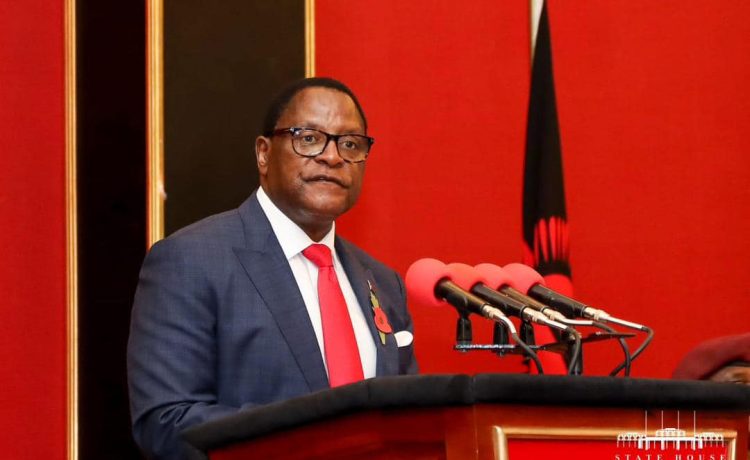While political rivals scramble to score points ahead of the 2025 elections, some have tried to pin the blame for the recent street violence on President Lazarus Chakwera — accusing him of turning a blind eye as demonstrators were beaten and vehicles set ablaze in broad daylight. But the Malawian leader has clapped back — not with silence, but with steel.
Currently in Nigeria for the Afreximbank Annual Meetings, Chakwera took to Facebook with a forceful condemnation of the violence that marred demonstrations in the capital. His words were not those of a man hiding behind diplomacy, but of a commander-in-chief ready to act.
“The right of Malawians to protest peacefully is not only enshrined in the Constitution, but also a birthright,” Chakwera stated. “Both the violence and destruction of property… are totally unacceptable and have no place in our democracy.”
He went further — issuing firm directives to the Ministers of Homeland Security and Defence to compile and deliver preliminary reports on what went wrong. “I will be expecting a preliminary report… upon my return, which will form the basis of further actions,” he said, insisting that the country must remain peaceful in the remaining 80 days before the election.
This isn’t Chakwera’s first rodeo. The last time violence erupted during protests, it was the President himself who ordered the Malawi Police Service to investigate and arrest those involved. True to his command, arrests were made and calm was restored — a pattern of leadership that contrasts sharply with his opponents, who are now using the latest unrest to gain political mileage.
But as the proverb goes, “The leopard does not change its spots.” Chakwera’s record speaks for itself: when officials under his government falter, they fall. From Ken Kandodo, fired for COVID-19 fund mismanagement, to Kezzie Msukwa, dropped over corruption allegations, and Harry Mkandawire, shown the door after the mishandling of the Chilima plane tragedy — Chakwera has consistently chosen the rule of law over political convenience.
Compare this to former President Peter Mutharika, who was notoriously slow to act in the face of scandal, only sacking his Agriculture Minister George Chaponda over the Kaloswe maizegate after immense public uproar. Where Mutharika hesitated, Chakwera has been decisive.
The President also sounded the alarm on the politicisation of peaceful protests.
“Let us each remain vigilant against those who seek to use our right to protest as an occasion to perpetrate violence and lawlessness for political gain,” he warned. “Let us not allow them to tear down the country we are working so hard to re-build.”
Diplomats and citizens alike have joined Chakwera in denouncing the violence, with many praising his steady hand. In a nation where political violence has too often been met with shrugging shoulders, Chakwera’s firmness is a sign of leadership with teeth.
Like a captain who refuses to abandon ship in rough waters, Chakwera has shown that when democracy is threatened, he stands at the helm — unflinching, unshaken, and unwilling to gamble with the future of Malawi.
And if leadership, accountability, and courage are the yardsticks by which we measure presidents, then Lazarus Chakwera is not just the man of the moment — he’s the man Malawi may need all the way to 2030.













